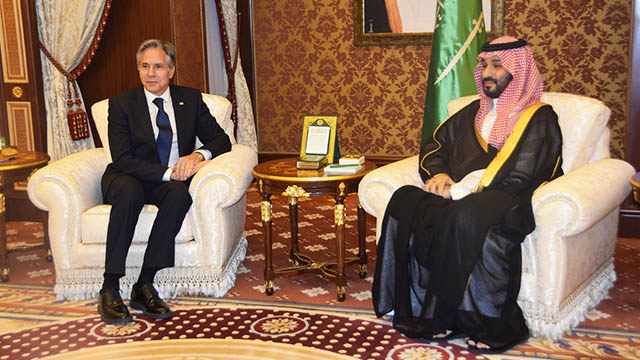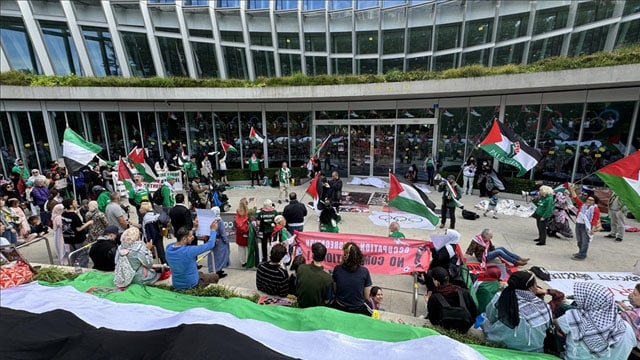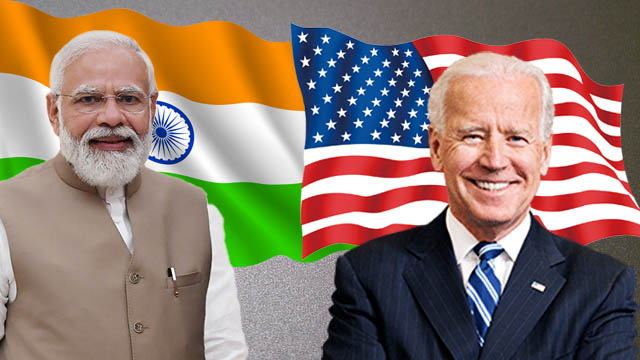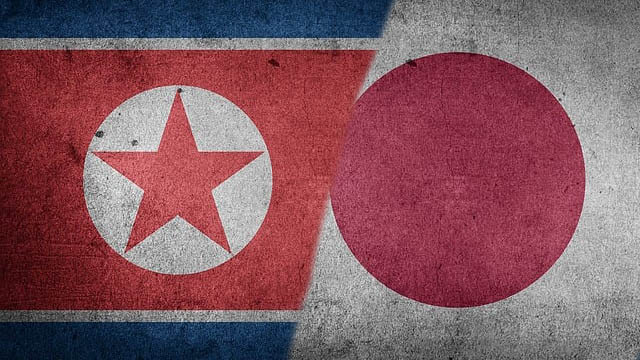The US is showing signs of desperation to retain its waning hegemony in the Middle East according to experts watching the fast-changing geopolitical realities in the volatile region. The latest attempt by the US to ensure its dominant position in the Gulf monarchies doesn’t face any challenge was by sending Secretary of State Antony J Blinken to Saudi Arabia on a three-day tour from June 6th to June 8th. During Blinken’s Saudi Arabia tour, the US side reportedly tried to woo the monarchy to remain at its side in the polarised world.
Blinken’s Saudi Arabia tour came at a time when Riyadh has started showing signs of supporting the demand for a multipolar world, advocated primarily by China, Russia and their allies. Washington DC has been one of the major weapons suppliers of the kingdom. While Saudi Arabia remained engaged in a bitter confrontation with Iran and fought a proxy war with it in Yemen, the US military-industrial complex had a good business. However, since Russia’s special military operations in Ukraine started, Riyadh has started showing signs of changing its allegiance.
Due to China’s interference, Saudi Arabia and Iran began to find ways to mitigate their confrontation and develop diplomatic ties. With the development of bilateral relations, the proxy war between Saudi Arabia and Iran in Yemen is also ending. The kingdom and other Arab states have also improved their ties with Syria, against which they had sponsored a major military campaign at the behest of the US. Recently, exhibiting the melting of the ice in their ties, Saudi Arabia welcomed Syrian President Bashar al-Assad to the Arab League meeting.
With the normalisation of relations between Saudi Arabia and Iran and the end of violent confrontations, the kingdom’s demand for weapons from the US will also fall. In this case, it can create a major issue for the US military-industrial complex. Although US President Joe Biden had shown scepticism regarding Saudi crown prince Mohammad bin Salman, his government had agreed to sell weapons to the kingdom. In August 2022, the Biden administration declared it would sell weapons worth US$5bn to Saudi Arabia and the UAE, two of its key regional partners.
The US had agreed to sell $3.05bn worth of Patriot missiles to Saudi Arabia and $2.25bn worth of Terminal High Altitude Area Defense (THAAD) system missiles to the UAE. The US’s Defense Security Cooperation Agency (DSCA) informed in August 2022 that the sale of the Patriot missiles will replenish the kingdom’s stockpile of these missiles. “These missiles are used to defend the Kingdom of Saudi Arabia’s borders against persistent Houthi cross-border unmanned aerial system and ballistic missile attacks on civilian sites and critical infrastructure in Saudi Arabia”, the DSCA had said in a statement.
Earlier, in June 2022, the US made an arrangement between key Gulf states and its regional satellite state Israel to form a joint air defence system to counter the rise of Iran, which is reportedly close to China and Russia. According to the US’s plan, the Middle East Air Defense Alliance (MEAD) will be formed by tying together the Israeli air defence system with other key US allies like Saudi Arabia and the UAE. The MEAD was supposed to intercept and counter any aerial attack on the member states by Iran using drones, rockets or missiles.
After Iran and Saudi Arabia started renewing their diplomatic ties to de-escalate tension in the region, others also followed suit, which can gradually isolate Israel in the region. This new development is followed by Saudi Arabia’s growing interest in becoming a part of the Shanghai Cooperation Organization (SCO) and the Brazil-Russia-India-China-South Africa (BRICS). Russia has reportedly supported Riyadh’s attempt to become a member of the BRICS, which is an alternative power bloc in the world and is largely welcomed by the countries in Asia, Africa and Latin America.
With Saudi Arabia’s gradual transition, the US military-industrial complex fears losing a major market to dump American weapons. In the meantime, China has been seeking an opportunity to develop railways and infrastructure in Saudi Arabia and the UAE in an apparent bid to secure its energy supply line from these countries. To stop the Chinese from developing railways in the Middle East, the US has partnered with India and engaged the Gulf monarchies. Although both countries lack the technological edge that China has in railways, they are keen to ensure Beijing doesn’t get a foothold in the Middle East.
However, after years of conflict and tension, the Middle East has been pursuing peace vigorously. The swinging of the Saudi Arabian monarchy exhibits the kingdom’s anxiety with the US. This paved the way for Blinken’s Saudi Arabia tour. Blinken travelled to Saudi Arabia to discuss US-Saudi strategic cooperation on regional and global issues, and a “range of bilateral issues including economic and security cooperation”, the Department of State informed.
During Blinken’s Saudi Arabia tour, the secretary also participated in the US-Gulf Cooperation Council (GCC) Ministerial to discuss the cooperation between Washington DC and the member countries to “promote security, stability, de-escalation, regional integration, and economic opportunities around the Middle East”, the Department of State informed. However, Blinken didn’t comment on the accusations of human rights violations by Saudi Arabia. He merely reiterated that “Human rights are always on the agenda of the United States – that’s who we are”, in a bid to not offend his host.
With changing geopolitical realities in the Middle East, especially after Biden visited Saudi Arabia last year, it seems that there is very little the US can do now to preserve its declining supremacy in the region. The US has so far used Iran as a subterfuge to deepen its ties with the Gulf countries and to sell its weapons to its regional allies. However, as peace finds a place in the region’s geopolitics, it’s evident that the US will frantically act to maintain the status quo. Amid this situation, it’s unlikely that Blinken’s Saudi Arabia tour will bear any favourable results for Washington DC.




